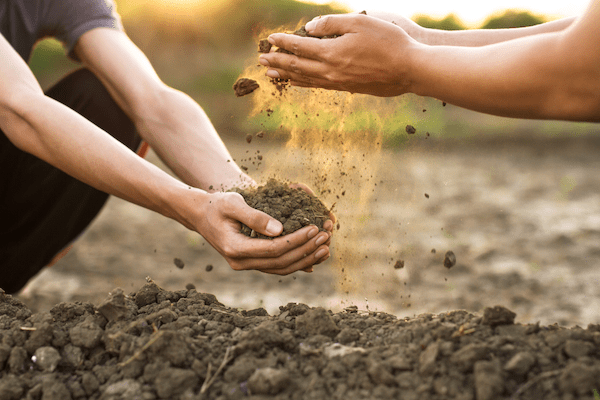“Coupled with the impacts of the COVID-19 pandemic on employment and food prices, and spiralling government debt, South Africa has an impending multidimensional crisis to address.”
Writing in his personal capacity for the Daily Maverick, Professor Raymond Auerbach (a member of the boards of the SA Organic Sector Organisation and the Agricultural Research Council) says that new cuts to South Africa’s agriculture budget will put our food security at even further risk than it is at already. He suggests that South Africa needs to direct more funding to agricultural research that serves the public good, rather than just boosting agribusiness profits.
Finance Minister Tito Mboweni’s COVID-19 budget has been criticised for only helping farmers who farm with chemical inputs, since assistance can only be used to buy synthetic fertiliser and poisons. Strategies such as this are based on a short-term handout mentality; they do not equip farmers to farm more sustainably, or even more profitably.
Along with an inadequate COVID-19 response in the agricultural sector, Agriculture Minister Thoko Didiza has announced plans to slash items in the agriculture budget. This exacerbates the impact of current challenges affecting South Africa’s food system.
In 2016, South Africa’s Agricultural Research Council (ARC) published an analysis of the difficulties facing our food systems, summarised as follows:
- Increasing population
- Climate change impacts
- Urbanisation
- Deterioration in soil, plant and animal health
- Energy supply
- Water availability and quality
- Pest and disease outbreaks
- Reduced biodiversity
- Increases in input and commodity prices
Addressing these issues has become more urgent than ever with the current COVID-19 pandemic and its associated impacts on South Africa’s economy, employment and food security.
What can be done to address food system challenges?
At a policy-making level, we need to adopt strategies to deal with the issues mentioned above; policies which create:
- An enabling agricultural environment
- Security of land tenure
- Political and economic stability
In addition, the South African agricultural sector must remain competitive and productive. This can be achieved through:
- Modern and alternative agricultural practices and systems
- The development of emerging farming and processing sectors
- Improving infrastructure and access to the value chain
- Skills development
- Technology transfer
The four key issues that agricultural policy must address:
- Practical farmer training to equip young farmers with sustainable farming knowledge
- Laboratory services to provide farmers with low-cost soil and feed analyses
- Incentives should be linked to long-term sustainability indicators
- National agriculture should be evaluated in terms of progress towards sustainability.
Adopting sustainable farming methods
Funding for agricultural research needs to be broadened to allow a focus on improving the nutritional value of food and helping farmers to use sustainable approaches.
We need soil and crop scientists to assist farmers in building soil fertility through a combination of:
- Soil biology – earthworms and microbes through compost
- Soil chemistry – natural inputs
- Soil physics – minimum tillage, soil cover and crop rotation.
With soil as a starting point, this approach should combine soil health with pest and disease management, seed breeding, veld and pasture management and strategies to increase farm biodiversity.
A new farming future
To achieve food and nutrition sustainability, South African agriculture policies will need to shift away from chemical subsidies to support mentorships, partnerships, increased biodiversity and a long-term approach to soil fertility and animal nutrition.
At Zylem, our primary goal is helping farmers work towards these objectives by achieving improved soil health.
Find out more about our services and solutions
Contact us on 033 347 2893 or send your enquiry to admin@zylemsa.co.za.

